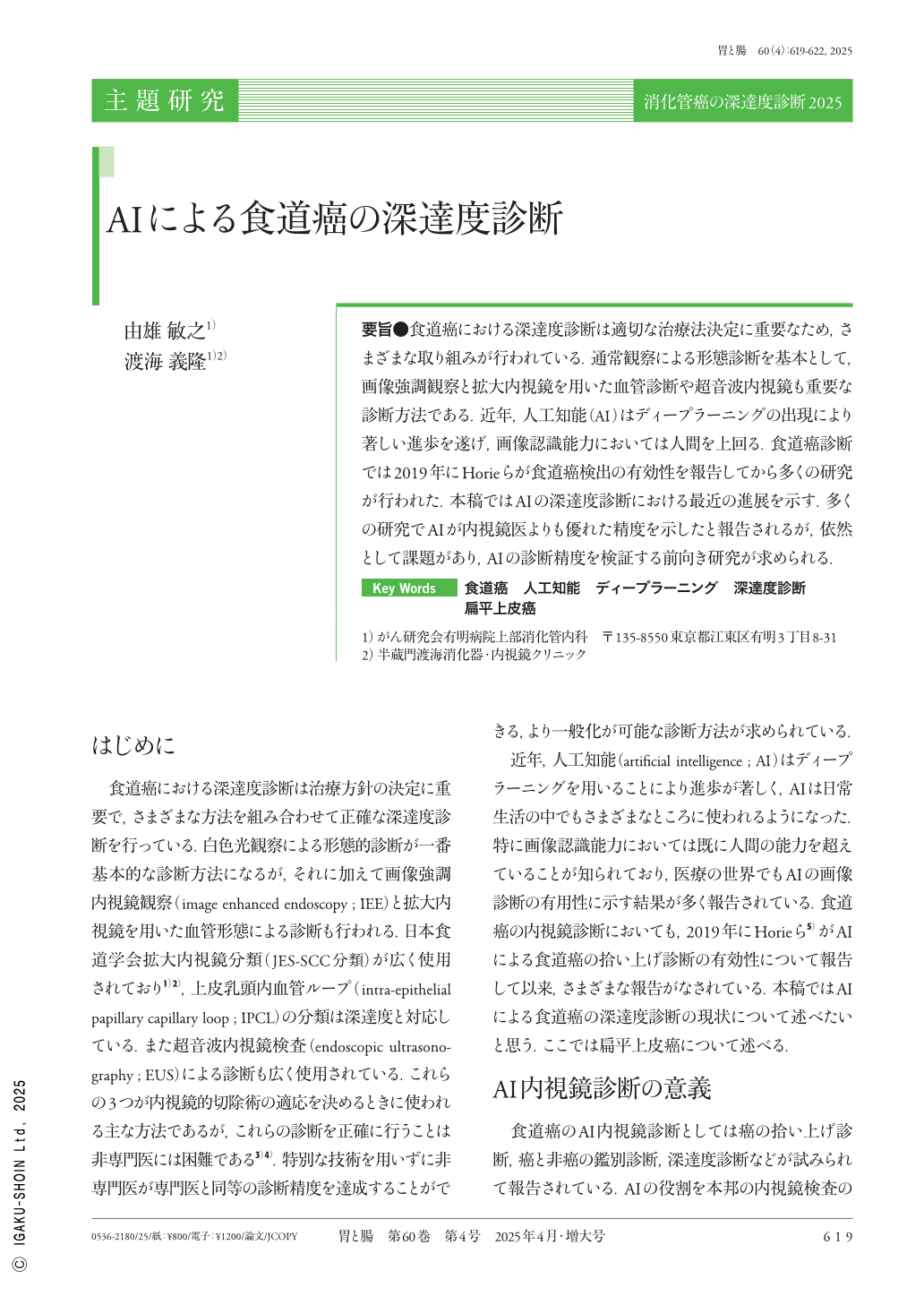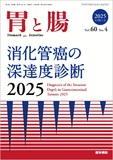Japanese
English
- 有料閲覧
- Abstract 文献概要
- 1ページ目 Look Inside
- 参考文献 Reference
要旨●食道癌における深達度診断は適切な治療法決定に重要なため,さまざまな取り組みが行われている.通常観察による形態診断を基本として,画像強調観察と拡大内視鏡を用いた血管診断や超音波内視鏡も重要な診断方法である.近年,人工知能(AI)はディープラーニングの出現により著しい進歩を遂げ,画像認識能力においては人間を上回る.食道癌診断では2019年にHorieらが食道癌検出の有効性を報告してから多くの研究が行われた.本稿ではAIの深達度診断における最近の進展を示す.多くの研究でAIが内視鏡医よりも優れた精度を示したと報告されるが,依然として課題があり,AIの診断精度を検証する前向き研究が求められる.
The accurate assessment of the invasion depth of esophageal cancer is critical for determining the appropriate treatment strategies, and considerable efforts have been made to achieve precise diagnoses by combining various methods. Morphological evaluation using white-light imaging remains the cornerstone of diagnosis. In addition, vascular morphology assessment by image-enhanced and magnifying endoscopies is widely employed. The Japan Esophageal Society's classification for magnifying endoscopic observation is commonly used, with the classification of intraepithelial papillary capillary loops correlating well with the invasion depth. Endoscopic ultrasonography also plays an essential role as a widely utilized diagnostic tool.
Recently, artificial intelligence(AI)has made remarkable progress, particularly through the application of deep learning. In image recognition tasks, AI has already demonstrated capabilities surpassing those of humans. In esophageal cancer diagnosis, Horie et al. first reported the efficacy of AI in detecting esophageal cancer in 2019, paving the way for numerous subsequent studies.
The present article reviews recent advancements in AI-assisted diagnosis of the invasion depth of esophageal cancer, focusing on squamous cell carcinoma. Many studies have shown that AI outperforms human endoscopists in this domain. However, limitations still remain, and prospective studies are needed to validate the accuracy, reliability, and clinical utility of AI-based diagnostic systems for assessing the invasion depth of esophageal cancer.

Copyright © 2025, Igaku-Shoin Ltd. All rights reserved.


